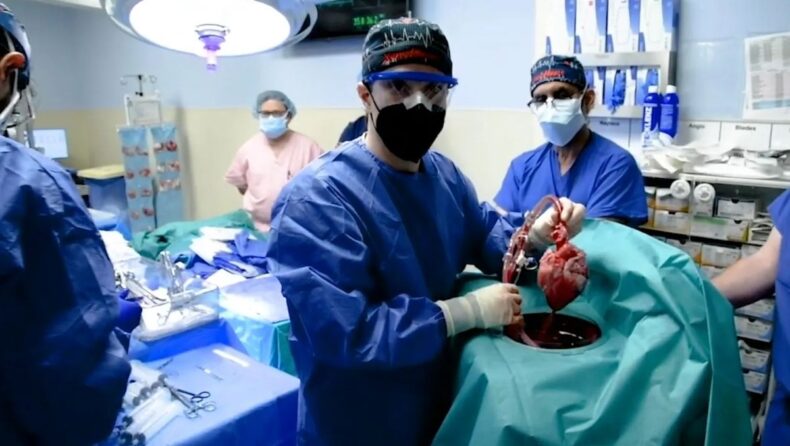- German researchers breed pigs to conduct experiments on organ transplants.
- Why pig is an ideal animal, and what are the benefits of these transplants.
According to an update in The New York Post, Dr Eckhard Wolf, a scientist at Ludwig Macmillan University in Munich, Germany, said he would be experimenting with his team on heart transplants. The two animals targeted for the trial experiment are pigs and monkeys, and human is to follow later.
However, on a recent transplant conducted by the University of Maryland Medical Center surgeons, a pig’s heart was transplanted on a human patient on January 7, 2022, which is considered a last attempt to save his life.
It created a lot of buzzes especially among academics, because it was already predicted by the widely acclaimed author Margaret Atwood in her Sci-Fi trilogy. She categorizes the subject as ‘Pigoons’.
These are the genetically engineered pigs that roam around in the Post-Apocalyptic Earth. Dr Wolf said that his team’s effort would be a simpler version of pig to human transplant with the help of “five genetic modifications”.
These modified pigs are expected by 2025 after the team’s first trial of monkeys. Wolf wants to use ‘inefficient’ cloning technology in their project and is seeking a human problem in a gap of two or three years.
The benefits of Animal Organ Transplants
It has been an elusive goal for a long time now. According to the reports, in the 1970s and 1990s, several attempts were made to transplant kidneys and, in some cases, even livers and hearts.
At the same time, many such attempts have also failed before. But the pig is an ideal animal as they are anatomically similar to human organs, and they also come in all sizes. Millions of pigs are slaughtered every year for human consumption, so it is not unethical to use pig’s organs to treat human diseases.
Nevertheless, there are obstacles too in this pig-human organ transaction, like the solid immune response elicited by porcine antigens. It means that if a pig kidney is saturated with human blood, it will boost antibody-antigen reaction.
There is a potential risk, no doubt, but it will also revolutionize the transplantation industry in the medical field.
Published By – Vanshu Mehra
Edited By – Subbuthai Padma













